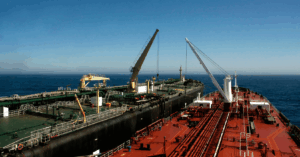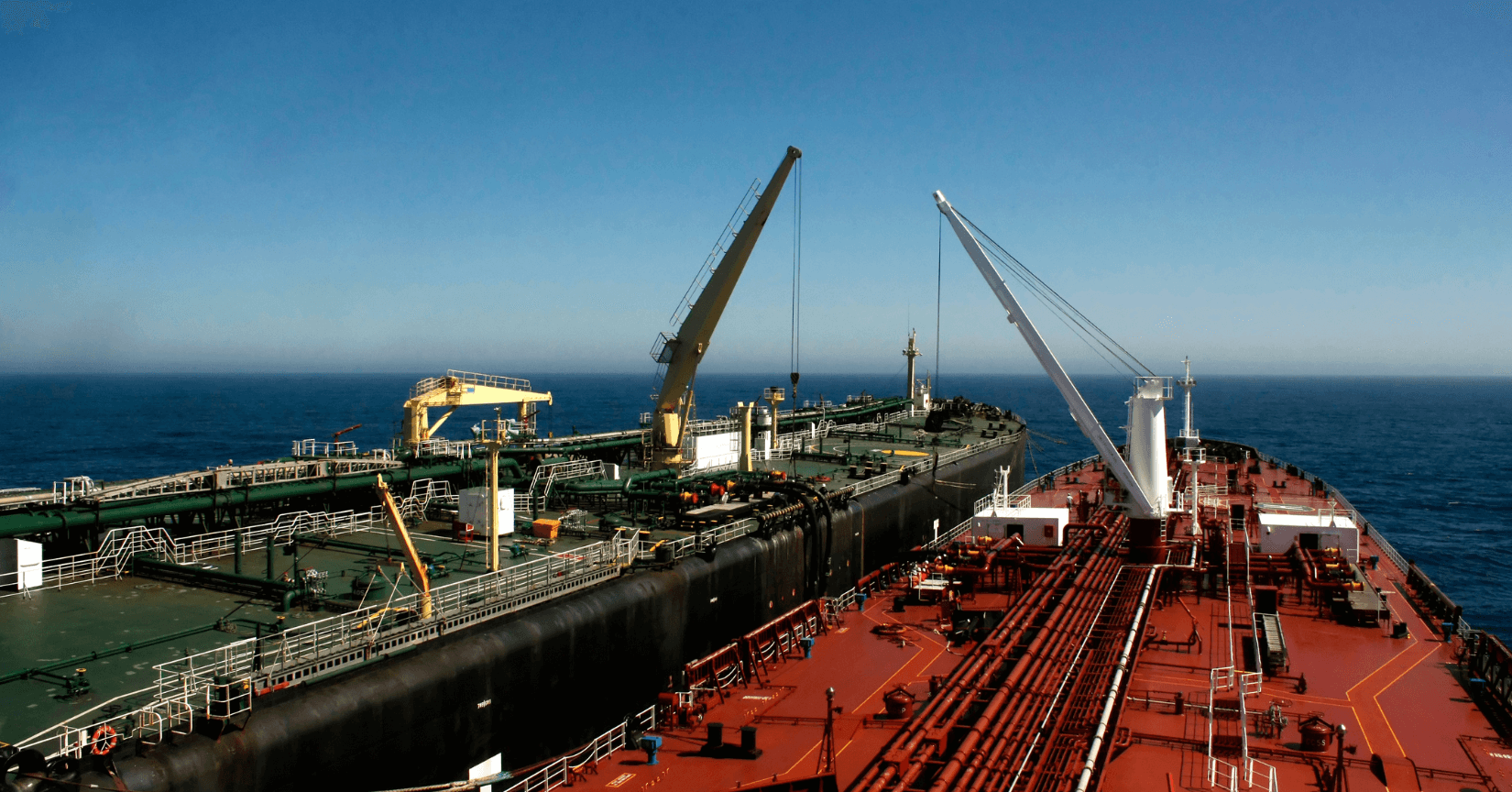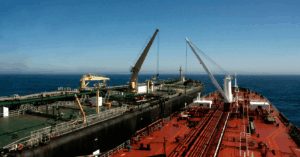
Russia Declares Occupied Ports Of Mariupol & Berdyansk Open To Foreign Ships, Ukraine Condemns
August 28, 2025
Conrad Shipyard Delivers New York’s First Hybrid-Electric Public Ferry
August 28, 2025

South Africa has introduced tough new rules to control offshore ship-to-ship (STS) transfer operations, including bunkering, along its coastline. The government says the measures are aimed at preventing pollution, protecting marine ecosystems, and giving critically endangered African penguins a chance to survive.
The regulations were signed by Forestry, Fisheries and Environment Minister Dr. Dion George under the National Environmental Management: Integrated Coastal Management Act, 2008. Once published in the Government Gazette, the new rules will come into effect immediately.
Violations of the regulations will carry heavy penalties, including fines of up to R2 million (about $2.1 million), imprisonment for up to five years, or both.
The environment department said the rules are designed to reduce the risk of oil spills, protect coastal ecosystems, and safeguard marine life such as penguins, seabirds, and mammals.
Algoa Bay, one of the world’s most biodiverse marine regions, has been placed under special restrictions to minimise risks from growing bunkering activities.
According to Minister George, the regulations set strict standards so that maritime operations can only take place in a safe and responsible manner.
The regulations introduce clear restrictions on how and where transfers may take place:
Prohibited zones: Ship-to-ship (STS) operations are not allowed within marine protected areas, aquaculture development zones, within five nautical miles of these zones, or within three nautical miles of the high-water mark.
Wildlife protection: Operators are required to monitor African penguins and marine mammals, use hydrophone systems to track their movements, and report any sightings or incidents. They must also have plans ready to respond immediately to oiled or injured wildlife.
Weather limits: In Algoa Bay, operations can only proceed under safe weather conditions, with wind speeds under 22 knots and waves below two metres. The Minister may establish similar weather limits for other regions.
Pollution prevention: Measures such as drip trays, leak detection systems, and inflatable booms must be in place. A spill-response vessel must remain within five nautical miles of the shore at all times.
Training and compliance: All crew members must complete environmental awareness training. Each operator must submit an independent Environmental Management Plan addressing site-specific risks, which requires Ministerial approval.
Algoa Bay restrictions: STS transfers are limited to designated anchorage areas. There will be caps on the number of operators and tankers allowed, and seasonal restrictions will apply in anchorage area 2 to protect sensitive habitats.
Algoa Bay has grown into a major bunkering hub on the busy Cape of Good Hope route, particularly since shipping traffic has surged due to the Red Sea crisis. But conservation groups warn that the expansion of STS operations in the bay has come at a heavy price for wildlife.
Local NGO SANCCOB said the penguin population at St. Croix Island in Algoa Bay, once the largest remaining African penguin colony, has collapsed since bunkering began in 2016. The island had about 8,000 breeding pairs in 2015, but the number has dropped to just 700 pairs today. The group blames vessel noise and oil spills for the 90 percent decline.
SANCCOB said it doubts the regulations will be strong enough to protect the penguins. The organisation called for stricter measures such as banning transfers at night, when oil spills are harder to detect and clean up, and lowering the wave height limit from two metres to about one metre.
The group also criticised the government for removing a clause that would have required operators to follow International Maritime Organisation (IMO) guidelines on underwater noise reduction. SANCCOB argued that this change benefits vessel operators more than wildlife.
Reference: sanews
Source: Maritime Shipping News


